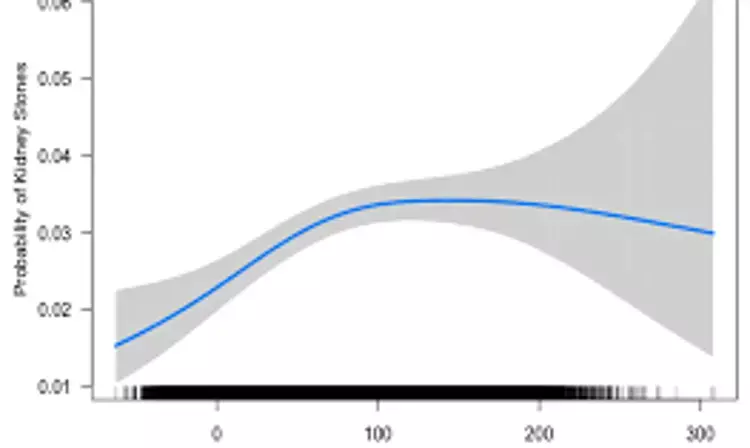- Home
- Medical news & Guidelines
- Anesthesiology
- Cardiology and CTVS
- Critical Care
- Dentistry
- Dermatology
- Diabetes and Endocrinology
- ENT
- Gastroenterology
- Medicine
- Nephrology
- Neurology
- Obstretics-Gynaecology
- Oncology
- Ophthalmology
- Orthopaedics
- Pediatrics-Neonatology
- Psychiatry
- Pulmonology
- Radiology
- Surgery
- Urology
- Laboratory Medicine
- Diet
- Nursing
- Paramedical
- Physiotherapy
- Health news
- Fact Check
- Bone Health Fact Check
- Brain Health Fact Check
- Cancer Related Fact Check
- Child Care Fact Check
- Dental and oral health fact check
- Diabetes and metabolic health fact check
- Diet and Nutrition Fact Check
- Eye and ENT Care Fact Check
- Fitness fact check
- Gut health fact check
- Heart health fact check
- Kidney health fact check
- Medical education fact check
- Men's health fact check
- Respiratory fact check
- Skin and hair care fact check
- Vaccine and Immunization fact check
- Women's health fact check
- AYUSH
- State News
- Andaman and Nicobar Islands
- Andhra Pradesh
- Arunachal Pradesh
- Assam
- Bihar
- Chandigarh
- Chattisgarh
- Dadra and Nagar Haveli
- Daman and Diu
- Delhi
- Goa
- Gujarat
- Haryana
- Himachal Pradesh
- Jammu & Kashmir
- Jharkhand
- Karnataka
- Kerala
- Ladakh
- Lakshadweep
- Madhya Pradesh
- Maharashtra
- Manipur
- Meghalaya
- Mizoram
- Nagaland
- Odisha
- Puducherry
- Punjab
- Rajasthan
- Sikkim
- Tamil Nadu
- Telangana
- Tripura
- Uttar Pradesh
- Uttrakhand
- West Bengal
- Medical Education
- Industry
Chinese visceral adiposity index reliable and effective biomarker for predicting risk of kidney stone: Study

Chinese visceral adiposity index reliable and effective biomarker for predicting the risk of kidney stones suggests a study published in BMC Nephrology.
Obesity is an important risk factor for kidney stones(KS). Chinese Visceral Adiposity Index (CVAI), as a specific indicator for visceral obesity in the Chinese population, can more accurately assess the visceral fat content in Chinese individuals compared to Visceral Adiposity Index (VAI). However, the association between CVAI and risk for KS has not been studied. A total of 97,645 participants from a health screening cohort underwent ultrasound examinations for the diagnosis of kidney stones, along with measurements of their CVAI. Logistic regressions were utilized to determine the relationship between different quartiles of CVAI and the incidence of kidney stones.
Simultaneously, subgroup analysis and the computation of dose-response curves were employed to pinpoint susceptible populations. Results: Among the participants, 2,888 individuals (3.0%) were diagnosed with kidney stones. The mean CVAI values ± standard deviation for the four groups were: Q1 (18.42 ± 19.64), Q2 (65.24 ± 10.39), Q3 (98.20 ± 9.11), and Q4 (140.40 ± 21.73). In the fully adjusted multivariable model, CVAI was positively correlated with urolithiasis (OR = 1.001; 95% CI = 1.000, 1.002). Compared with the first quartile of CVAI, the population in the fourth quartile of CVAI had a higher prevalence of kidney stones (OR = 1.231; 95% CI = 1.066, 1.415). Through subgroup analysis, a positive correlation between CVAI and the risk of kidney stones was found in non-smokers (OR = 1.001, 95%CI:1.000, 1.002), non-drinkers (OR = 1.001, 95%CI:1.000, 1.002), non-hypertensive subgroups (OR = 1.003, 95%CI:1.002, 1.003), and non-diabetes subgroups (OR = 1.001, 95%CI:1.000, 1.002). The findings suggest that CVAI could be a reliable and effective biomarker for assessing the potential risk of kidney stone prevalence, with significant implications for the primary prevention of kidney stones and public health.
Reference:
Cai, X., Xu, M., Chen, L. et al. Association between chinese visceral adiposity index and risk of kidney stones in a health screening population: an ultrasonography based cross-sectional study. BMC Nephrol 25, 193 (2024). https://doi.org/10.1186/s12882-024-03627-6
Dr. Shravani Dali has completed her BDS from Pravara institute of medical sciences, loni. Following which she extensively worked in the healthcare sector for 2+ years. She has been actively involved in writing blogs in field of health and wellness. Currently she is pursuing her Masters of public health-health administration from Tata institute of social sciences. She can be contacted at editorial@medicaldialogues.in.
Dr Kamal Kant Kohli-MBBS, DTCD- a chest specialist with more than 30 years of practice and a flair for writing clinical articles, Dr Kamal Kant Kohli joined Medical Dialogues as a Chief Editor of Medical News. Besides writing articles, as an editor, he proofreads and verifies all the medical content published on Medical Dialogues including those coming from journals, studies,medical conferences,guidelines etc. Email: drkohli@medicaldialogues.in. Contact no. 011-43720751


